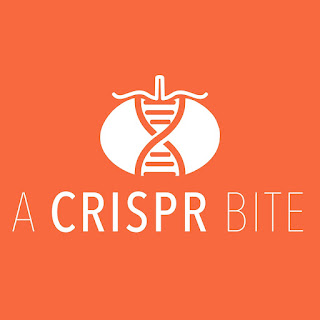What is more prevalent than neighborhood Karens in the U.S. today?
Conspiracy theories. Any event can be transformed into an attack by real or perceived enemies. Of course, the amorphous and threatening "Deep State" is a favorite topic of these "detectives."
The mother ship for conspiracy theories could be our food supply. According to the profligately paranoid, the government is secretly inserting poison, beverages that turn boys gay (thank you, Alex Jones), cancer-causing agents, and ingredients that make us communists (thank you, Donald Trump).
To combat misinformation, disinformation, distortions, conspiracy theories, and lack of knowledge, a podcast -- A CRISPR Bite -- was produced by GEAP3 (Genome Editing and Agricultural Policy, Practice, and Public Perceptions), an international social science research consortium that explores how key developments in gene editing are framed and governed, with particular focus on agriculture development and social justice.
The Public Perceptions hub is led Klara Fischer, Associate Professor and researcher at Department of Urban and Rural Development at SLU and Glenn Stone at Washington University in St Louis.
Gene-editing technology
came out as a massive biotech breakthrough in the last decade, but most
people have still never heard of it. The podcast A CRISPR Bite takes
listeners into the labs where researchers are tinkering with food genes,
to help break down the problems they’re hoping to solve – and what’s at
stake.
Each episode in the five-episode series focuses on a specific agricultural product – tomatoes, soy, wine and cattle – as a lens through which we tackle the major economic, ethical, and social questions arising from new gene technologies like CRISPR and TALEN. The podcast episodes provide interviews with experts about how these technologies work, about key players in the vast patent and policy debate, and what changes consumers can expect to see on our plates in the next few years.
The host is food anthropologist Dr. Lauren Crossland-Marr, who takes listeners into the labs where researchers are tinkering with food genes, to help break down the problems they’re hoping to solve – and what’s at stake.
What's a food anthropologist, you ask? Glad you did ask (there are no stupid questions). A food anthropologist is a social scientist who studies how food affects politics, human relationships and the ways that people live and work. They examine such things as how food influences social gatherings and has caused wars and conflicts due to its availability or scarcity.
That's a cool job, and from listening to the trailer and the first episode, Dr. Crossland-Marr is an excellent food anthropologist and quite a good podcast host.
Now, I think I know what you're thinking. For the science geeks and just regular people in podcast universe, you're thinking, "This podcast sounds interesting. I'm going to listen." But for the non-science people, this podcast sounds too complicated and nerdy.
To that, I say, "try it, you may enjoy it."
Dr. Crossland-Marr emits science jargon in small, digestible bites, and even I can understand it. And I still can't tie my own tie.
In the first episode, I leaned the difference between GMOs (genetically modified organisms) and food edited by CRISPR. And it's an important difference. I'm not going to tell you. You have to listen.
Dr. Crossland-Marr, at the end of episode one, explains that she will investigate the three big questions she has about CRISPR-edited food.
1. Is the technology really as precise as promised?
2. What are the business interests at play?
3. What might responsible government regulation look like?
In the second episode, our host promises to cover a CRISPR-edited tomato that could help relieve anxiety. Then, the good doctor will take us to Japan, where the first CRISPR-edited food is on the market.
I think it's too easy to fall into the Trump-induced paranoia about innovation. Everything new isn't bad or a conspiracy by some nameless, faceless elites. We should investigate with precision, and draw conclusions cautiously when the data is clear. Or just admit that, "we're not sure."
A CRISPR Bite podcast can help us make sense of this innovation. After all, technology is defined by how it's used. Nuclear energy can be used to build bombs and missiles, or supply power to millions.
Check out the podcast to stay informed about what we eat.

Comments
Post a Comment
Thank You for your input and feedback. If you requested a response, we will do so as soon as possible.